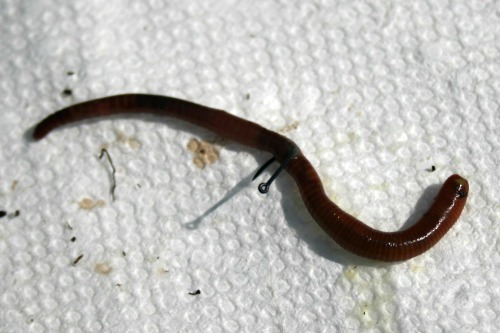The Extraordinary World of Red Wigglers: Boost Your Dirt Fertility Today
These tiny yet efficient microorganisms transform organic waste into useful worm spreadings, considerably boosting soil wellness and promoting sustainable methods. As we explore the benefits of vermicomposting and the functional steps to produce a reliable worm bin, the prospective impact of these worms on your gardening success becomes significantly apparent.
Comprehending Red Wigglers
Red wigglers, medically referred to as Eisenia fetida, are a types of earthworm that play a crucial role in improving dirt fertility. These worms grow in organic-rich environments, such as compost heap and rotting plant product, where they take in natural waste and eliminate nutrient-dense spreadings. Their unique anatomy, featuring a fractional body and a clitellum, allows them to recreate quickly and effectively procedure huge quantities of natural issue.

The eco-friendly significance of red wigglers prolongs beyond mere waste handling; they add to the soil food web, cultivating a diverse area of bacteria that additionally improve soil wellness. Comprehending the biology and behavior of red wigglers is vital for using their full capacity in sustainable farming and horticulture methods.
Benefits of Vermicomposting
The visibility of worm castings boosts dirt appearance, allowing for better water retention and drain. Red wigglers assist damage down natural matter, speeding up decomposition and recycling nutrients back into the soil.
Vermicomposting also fosters microbial task, which is crucial for a healthy dirt community. Beneficial bacteria flourish in the presence of worm spreadings, helping in the failure of organic products and boosting vitamins and mineral schedule to plants.
Finally, vermicomposting functions as a reliable waste management service, reducing garbage dump waste by reusing kitchen area scraps and various other natural materials. This not only adds to ecological sustainability yet likewise advertises a circular economic situation within horticulture and agriculture.
Just How to Establish Up a Worm Container
Establishing a worm container is a straightforward procedure that can substantially improve your composting initiatives. Begin by picking a proper container, which can range from a commercially offered worm container to a basic plastic or wood box (Red Wiggler Express). Guarantee the container has adequate air flow; tiny openings in the lid and sides will certainly help with air circulation
Next, develop a bed linen layer to offer a comfy setting for the red wigglers. This can be made from shredded paper, cardboard, or coconut coir, dampened to a wet, sponge-like uniformity. Fill the container to about one-third full with this bed linen material.
When the bed linens is prepared, it's time to present the worms. Red wigglers thrive in organic waste, so location them carefully onto the bed linen. Cover the worms with a light layer of additional bed linens to help them accommodate.
Feeding Your Red Wigglers
Giving the ideal food for your red wigglers is vital for their wellness and the performance of your composting system. Red wigglers prosper on a diverse diet, mostly containing natural materials such as vegetables and fruit scraps, coffee premises, and shredded paper. These materials not just provide vital nutrients however also add to the microbial activity in the worm container, which is important for the worms' digestion.
It is important to avoid specific foods, such as milk items, oils, and meats, as these can bring in pests and develop undesirable smells. In addition, citrus peels and extremely hot foods ought to be limited because of their prospective to harm the worms. A balanced approach to feeding includes checking the quantity of food introduced to the bin, making sure that it is eaten within a reasonable amount of time to avoid excess waste accumulation.
To advertise ideal food digestion, it is beneficial to chop or shred larger food items before adding them to the container. This practice increases the area for microbial action, helping with quicker decay and improving the general effectiveness of your composting system. Routinely observing the worms' feeding habits will aid you readjust their diet regimen as essential.
Making Use Of Worm Spreadings in Your Garden

To maximize the benefits, aim to use roughly one component worm castings to 3 parts dirt in your planting beds. Routine applications can lead to enhanced plant yields and much healthier plants, making worm spreadings an indispensable source for both beginner and seasoned gardeners alike. By using this all-natural change, you can grow a thriving yard while adding to sustainable horticulture techniques.
Final Thought
To conclude, red wigglers exemplify the essential role of vermicomposting in improving dirt fertility. Their ability to transform organic waste into nutrient-rich spreadings considerably improves dirt structure and supports microbial variety. Establishing a vermicomposting system not only promotes lasting horticulture practices but likewise adds to ecological health. By leveraging the benefits of these remarkable organisms, gardeners can grow extra productive and durable ecological communities, ultimately promoting a much more lasting strategy to farming and horticulture.
Comments on “Red Wiggler Express: Helping Anglers with Top-Notch Worms”